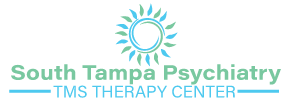Medication-assisted treatment (MAT) is a term used for when patients receive treatment that combines therapy with medication to address addiction. MAT programs aim to treat substance abuse disorders holistically, using multiple methods at once. Its primary use cases are for opioid, heroin, and alcohol addiction. Medications used in treating those addictions block the effects of opioids, reduce cravings, and support smooth detox periods. Learn more about medication-assisted treatment programs in Tampa, Florida by contacting South Tampa Psychiatry at 866.273.5017.
Effectiveness of a MAT Program
The primary purpose of MAT programs is to support people in recovering from addiction. The medications used in treating opioid and alcohol addictions are proven to relieve withdrawal symptoms and cravings. They make navigating detox and early stages of recovery less overwhelming for many people.
Recent data points to millions of people nationwide struggling with opioid addiction. MAT is a practical, proven method for remediating and dealing with opioid addictions. It prioritizes a comprehensive, individualized approach that can dramatically reduce the need for inpatient services. The implementation of MAT programs has resulted in:
- Decreased overdose deaths from opioid addictions
- Improved treatment retention
- Increased the ability of people in recovery to gain and retain employment
- Improved birth outcomes for pregnant women with an addiction
The next two sections explore medications commonly used in MAT programs that treat opioid and alcohol abuse disorders.
Medications Used in Alcohol Addiction Treatment
The three drugs that most MAT programs for alcohol addiction use are naltrexone, disulfiram, and acamprosate. Naltrexone blocks the effects of alcohol so that its usage does not result in intoxication and dulled senses. This helps prevent relapse as people taking naltrexone find it easier to avoid using alcohol since it no longer provides any benefit.
Disulfiram is most often used for chronic alcoholism and following the detox stage. People who are actively taking disulfiram will experience adverse side effects whenever they imbibe alcohol. These include:
- Headache
- Nausea
- Vomiting
- Chest pain
These side effects are not dangerous. Most often, they last anywhere from a few minutes up to an hour. In this way, disulfiram reinforces abstinence by causing discomfort anytime someone uses alcohol.
Lastly, acamprosate is another drug whose usage can stop people from using alcohol. Since it does not alleviate withdrawal symptoms for people detoxing from alcohol, it is usually prescribed following a successful detox for those remaining in recovery.
Medications Used in Opioid Addiction Treatment
The other primary target of MAT programs is opioid addiction. Buprenorphine, methadone, and naltrexone are three drugs used to combat opioid addiction. Notably, these medications are safe for people to use over the long term. That makes them effective options for months and even years for people seeking to avoid relapse.
Buprenorphine works by reducing cravings for opioids. Methadone reduces cravings as well while also suppressing withdrawal symptoms during detox. Naltrexone, whose prescription is common to alcohol use disorder, is able to block the euphoric and sedative effects of opioids.
One other medication that is vital to the public health system in fighting opioid abuse is naloxone. Naloxone can help prevent overdose. MAT programs keep it on hand for safety reasons though it is not a medication that addiction treatment experts use in ongoing treatment plans. First responders such as police officers, firefighters, and EMTs have training in the use of naloxone as the first line of defense in preventing overdose deaths and connecting people with the care they need to overcome addiction.
Learn More at South Tampa Psychiatry
South Tampa Psychiatry operates a medication-assisted treatment program in Tampa, Florida. Our MAT program pairs evidence-based therapy with effective medications to produce exceptional patient results. Don’t let addiction hold you back anymore. Call us at 866.273.5017 to learn more about how our MAT program could benefit you or a loved one.







